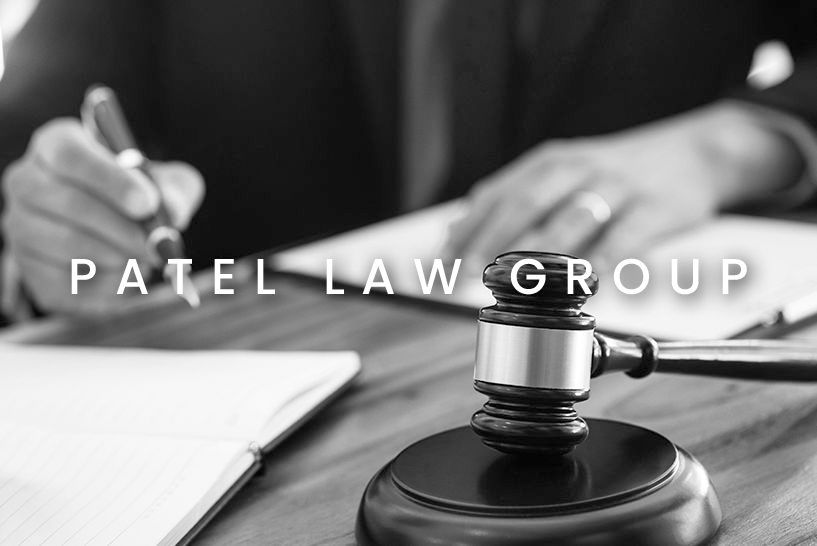
Fiance Visa Attorney in Washington, D.C.
How Can a U.S. Citizen Assist Their Fiancé in Gaining Permanent Residency?
A U.S. citizen who wishes to marry a non-U.S. citizen or permanent resident can help their fiancé obtain permanent resident status in different ways under a family-based visa. One way is to apply for a fiancé visa if your fiancé is overseas and you want to marry in the U.S. This visa lets your fiancé enter the U.S. for 90 days so that your marriage ceremony can take place in the U.S. Once you marry, your spouse can apply for permanent residence and remain in the U.S. while we process the application.
If the petition is approved, USCIS will send the file to the National Visa Center (NVC), which will process and forward it to the U.S. Embassy or consulate nearest your fiancé’s foreign place of residence. The embassy or consulate will then invite him or her to apply for the actual fiancé visa.
Another way is to marry your fiancé overseas. If you marry overseas, you can file the petition for your new spouse in the U.S. If your fiancé is already in the U.S. in another legal immigration status, you may file a relative petition after you marry.
Cross-border marriages involve intricate legal steps, especially in Washington, DC. Our deep understanding of local procedures ensures your application considers DC-specific procedural norms. Navigating these carefully can expedite the process, ensuring a smooth transition for your partner into U.S. life.
Overview of Marriage-Based Visas in Washington, DC
Marriage to a U.S. citizen or lawful permanent resident is a common pathway to obtaining legal residency in the U.S. The process can involve different types of visas, primarily the CR-1 or IR-1 visas. In Washington, DC, unique local regulations and proximity to immigration offices can influence the process. Understanding these distinctions can impact your application timeline and requirements.
When applying for a marriage visa, attention to detail is key. This includes providing thorough documentation such as marriage certificates and personal identification. Our team's dedication to individualized client care ensures all aspects of your application align with USCIS standards. Carefully handling each step of the process not only aids approval rates but also effectively addresses DC-specific legal nuances.
Eligibility Criteria for a Fiancé Visa Petition
- You must be a U.S. citizen to file a fiancé petition. In your petition, you must show that:
- You are a U.S. citizen
- You and your fiancé intend to marry within 90 days of your fiancé entering the U.S.
- You are both free to marry; and
- You have met each other in person within 2 years before you file this petition. However, there are two exceptions which require a waiver:
- If the requirement to meet your fiancé in person would violate strict and long-established customs of your or your fiancé’s foreign culture or social practice; or
- If you prove that the requirement to personally meet your fiancé would result in extreme hardship to you.
Understanding these criteria helps align your application with USCIS expectations, increasing approval chances. Consulting with our team offers insights into possible exceptions and waivers. In Washington, DC, particular cultural practices might add layers of consideration to the process. Our guidance is tailored to help you navigate these with confidence.
Working With A Marriage Visa Attorney in Washington, DC
Choosing the right legal support for a marriage-based case can make the process clearer and less stressful for you and your spouse. When you work with our team in Washington, DC, we take time to understand your relationship history, your immigration background, and any prior filings before recommending the best path forward. We regularly interact with the local USCIS field office serving the District of Columbia and are familiar with how interviews are typically conducted there. This practical experience helps us prepare you for what to expect and how to present your case in a way that is organized and consistent with agency expectations.
From the initial consultation, we explain how the marriage petition, adjustment of status, and consular processing steps fit together so you can decide which route is most appropriate. For some couples, filing for a spouse abroad through consular processing may be better, while others may qualify to adjust status here in the United States. As a marriage immigration lawyer, we coordinate your forms, supporting documents, and timelines so that each step supports the next, and we stay in communication with you as your case moves through USCIS, the National Visa Center, or a U.S. consulate.
Many couples also want to understand how their marriage case might interact with work authorization, international travel, or future naturalization. We review these long-term considerations with you so that the immediate goal of obtaining lawful status also supports your broader plans for living and working in the Washington, DC region. If issues arise that touch both immigration and local family law, such as separation or pending divorce proceedings in DC Superior Court, we help you understand how those developments could affect your immigration options and what steps may be available to protect your position.
Contact our firm today to schedule an initial consultation.
Fiancé Visa FAQ
If I Choose the Fiancé Visa Option, How Does My Fiancé Obtain Permanent Resident Status?
Your fiancé will need to enter the U.S. with a fiancé visa. Once admitted to the U.S. with a K-1 visa, your fiancé will be authorized to stay for 90 days during which you are permitted to marry. As soon as you marry, your spouse may apply for permanent residence. It is crucial to submit relevant documents promptly to prevent overstays. Our experienced team can ensure your application is complete and accurate, addressing any local nuances in Washington, DC.
Can My Fiancé's Child Accompany Them to the U.S.?
If the child is under 21 years old and is not married, a K-2 visa may be available to him or her. Be sure to include the names of your fiancé’s children on your petition. In Washington, DC, educational facilities and family services are available to support children of new immigrants. We are available to discuss how to include your fiancé's children in your immigration journey.
Can My Fiancé Work in the U.S. While on a Fiancé Visa?
After admission, your fiancé may immediately apply for permission to work. Any work authorization would be valid for only 90 days after entry. However, your fiancé would also be eligible to apply for extended work authorization at the same time as he or she files for permanent residence. In this case, your fiancé would file the employment authorization with the adjustment application as soon as you marry. Our team aids in understanding employment options, helping you comply with federal and local requirements and preventing future complications.
What If My Fiancé Uses a Different Kind of Visa or Enters as a Visitor Without a Visa to Come Here so We Can Marry?
If your fiancé is in the U.S. and entered using a visa other than a fiancé visa, and you marry, then you may file a relative petition for him or her as your spouse. If your fiancé is in the U.S. and entered unlawfully, in most cases he or she will not be able to adjust status to that of a permanent resident while in the U.S. In this situation, once you marry, you may file a relative petition for him or her as your spouse. If approved, he or she will have to pursue an immigrant visa at a U.S. Embassy or consulate overseas. BEWARE THAT IF YOUR FIANCE LEAVES THE U.S., SHE MAY TRIGGER THE UNLAWFUL PRESENCE THREE (3) OR TEN (10) YEAR BAR. Navigating these complexities requires careful legal handling. Our focus is to ensure you understand the potential pathways and pitfalls, particularly within the context of Washington, DC regulations.
What Should We Do If We Are Engaged but Not Ready to Marry?
The fiancé visa is a temporary visa that simply permits your fiancé to enter the U.S. so that the two of you may marry in the U.S. within the 90 days permitted from the date of entry. It is not a way for you to bring a person to the U.S. so you can get to know one another, or spend more time together to decide whether or not you want to marry. Planning is essential. Our law firm can help you weigh your options before proceeding with an engagement visa, always taking into account your unique circumstances and readiness for such a life-changing decision.
What Happens If We Do Not Marry Within 90 Days?
Fiancé status automatically expires after 90 days. It cannot be extended. Your fiancé should leave the U.S. at the end of the 90 days if you do not marry. If your fiancé does not depart, he or she would violate U.S. immigration law. This could affect future eligibility for U.S. immigration benefits. It is important to understand the implications of letting a fiancé visa lapse, including the impact on future immigration opportunities. In Washington, DC, we are well-versed in managing such situations, ensuring you are informed of potential outcomes and choices.
We Want to Make Plans for Our Wedding. How Long Will This Process Take?
Each case is different. Fiancé petitions are processed in the order they are received. Once processing is completed, the approved petition is then forwarded to the National Visa Center (NVC). The NVC will send the petition to the U.S. Embassy or consulate, which will need time to process your fiancé for a visa. You may check the USCIS website for current processing times for fiancé petitions. Properly timing your application and wedding plans is just as crucial as the legal components involved. Our office offers guidance ensuring your timing aligns with your goals, helping reduce stress as you plan your future together in Washington, DC.
What Are Common Mistakes to Avoid in the Marriage Visa Process?
Common mistakes in the marriage visa process include incomplete applications, missing documentation, and not demonstrating genuine relationship legitimacy. In Washington, DC, where scrutiny levels might be higher due to local directives, it is essential to work with experienced legal professionals. At Patel Law Group, we meticulously review every document to try to avoid delays and potential rejections. Our commitment to educating and communicating with clients is our promise to guide you through each stage smoothly.
What Is the Role of the USCIS Office in Washington, DC for Marriage Visas?
The USCIS office in Washington, DC plays a critical role in processing marriage visas, including conducting interviews and biometric appointments. Local procedures at the DC office can vary, making familiarity with these specifics useful. This office manages a high volume of cases, so applicants should be prepared for processing timelines and follow local guidelines. Our knowledge of the Washington, DC office's workings helps us better prepare applicants for what to expect during their visits.
How Does the Divorce Process Affect Immigration Status?
Divorce can complicate an immigrant spouse’s residency status, particularly if it occurs before conditional residency is converted to a permanent one. In Washington, DC, family court outcomes may interplay with immigration status, requiring careful navigation. Our approach at Patel Law Group addresses these challenges by providing legal strategies and continuous support, ensuring our clients are informed and their interests protected throughout the process.

Contact
Get Started NowLearn which visas you are eligible for you to enter the United States, and get assistance applying. Contact an immigration attorney at (888) 223-8176 today!


